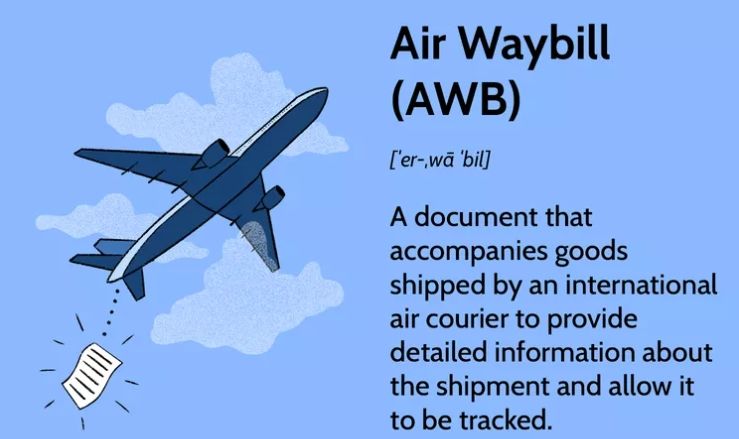Explain What is an air waybill (AWB)?
What is an air waybill (AWB)?
An Air Waybill (AWB) is a crucial document in international shipping, accompanying goods sent by air couriers to provide comprehensive information about the shipment and enable efficient tracking. Often referred to as an air consignment note, an AWB serves as a non-negotiable type of bill of lading, playing a vital role in the transportation of goods globally.

Key Takeaways:
The AWB acts as a receipt of goods by the airline carrier and establishes a legal contract of carriage between the shipper and the carrier, enforceable by law. It comprises essential details such as the shipper's and consignee's names and addresses, origin and destination airport codes, declared shipment value for customs, gross weight, a description of the goods, and any special instructions.
Understanding the Air Waybill (AWB):
The AWB becomes a legally binding contract when both the shipper (or their agent) and the carrier (or carrier's agent) sign the document. It includes conditions of the contract, outlining the carrier's terms, liability limits, claims procedures, and applicable charges. Unlike other bills of lading, AWBs are non-negotiable instruments, focusing solely on transportation without covering the merchandise value.
Air Waybill vs. Bill of Lading:
While bills of lading detail the type, quantity, and destination of goods, acting as a receipt upon delivery, AWBs differ as non-negotiable instruments. They do not specify the flight or arrival time, and their purpose is solely for transportation, excluding coverage for merchandise value.
Requirements for an Air Waybill:
The International Air Transport Association (IATA) designs and distributes AWBs, including airline-specific and neutral formats. Carrier-specific AWBs must feature the carrier's name, head office address, logo, and air waybill number. IATA, representing a significant portion of global air traffic, ensures the standardization of AWBs, with neutral versions available.
Providers of the Air Waybill:
IATA documents, signed by both shippers and carriers, are widely used, with major carriers such as FedEx and UPS adhering to these standards. The IATA, a prominent trade association, facilitates the standardization of AWBs, ensuring consistency and reliability.
What Is Required in the Air Waybill?
An AWB necessitates information such as names and addresses of the shipper and recipient, cargo value, airport codes, piece count, gross weight, description of goods, special instructions, and contractual conditions. Electronic versions (e-AWBs) have become commonplace, with carriers like FedEx offering convenient online access.
Conclusion: In the realm of international shipping, an Air Waybill is indispensable. It functions as a binding contract between shippers and carriers, specifying shipment details, origins, destinations, and other pertinent information. With the prevalence of electronic AWBs since 2019, this non-negotiable document ensures legal enforceability, providing a standardized and efficient means of documenting and tracking shipments.
Related articles

 WeChat of CBiBank
WeChat of CBiBank